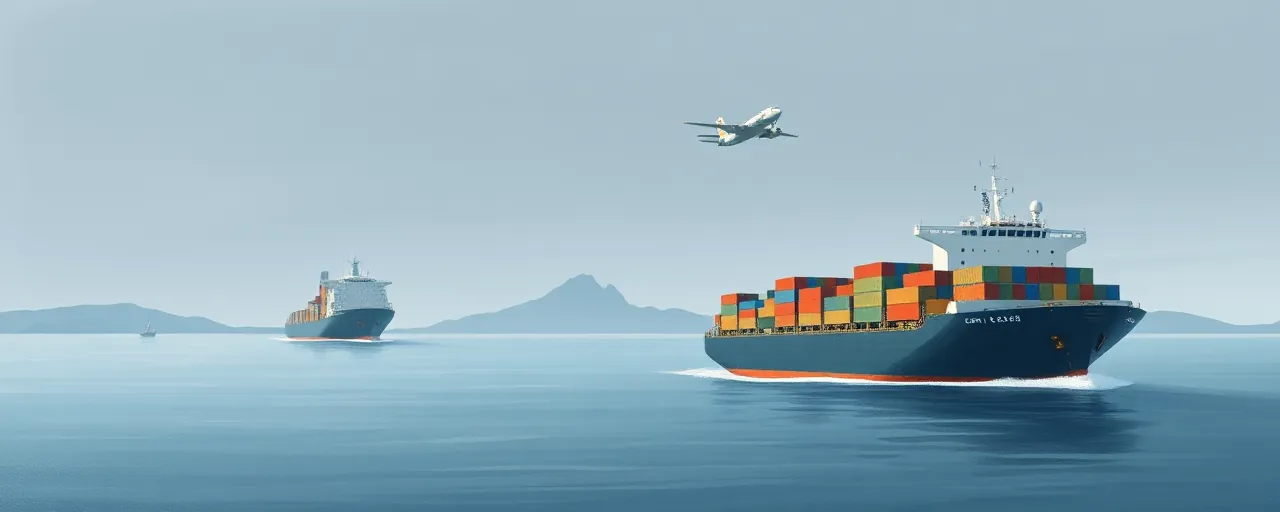A New Deal in the Skies
Air India is negotiating with Boeing to acquire 10 aircraft originally intended for Chinese airlines, sources familiar with the talks confirm. The move comes as escalating U.S.-China trade tensions disrupt global aerospace markets, leaving Boeing scrambling to rehome undelivered jets. These planes, customized for Chinese buyers, were rejected due to Beijing's retaliatory tariffs, which hit U.S. aerospace exports with duties as high as 125%. For Air India, the deal represents a chance to expand its fleet amid a global shortage of commercial jets.
The talks highlight broader shifts in the aerospace industry, where trade wars and geopolitical frictions are redrawing supply chains and sales strategies. Boeing, a cornerstone of U.S. manufacturing, faces mounting challenges, from tariff-driven delivery refusals to internal quality concerns. Meanwhile, India is positioning itself as a key player in this realignment, leveraging its growing economy and strategic trade ties to capitalize on opportunities others leave behind.
Trade Tensions Ground Deliveries
The U.S.-China trade war has hit Boeing hard. In 2025, Chinese airlines refused delivery of dozens of jets, citing Beijing's tariffs imposed in response to U.S. duties of up to 145% on Chinese goods. Boeing had planned to deliver around 50 aircraft to China this year, roughly 10% of its commercial backlog. With those plans derailed, the company is redirecting jets to markets like India, Latin America, and Southeast Asia. Repurposing these planes is no small task; aircraft are tailored to specific buyers, requiring costly reconfiguration to meet new operators' needs.
Beyond tariffs, Boeing grapples with a complex web of challenges. A recent strike, quality control issues, and financial losses have strained operations. The company is ramping up production of its 737 MAX to meet global demand, but trade uncertainty looms large. Industry surveys rank trade disruptions as the top concern for aerospace executives, outpacing even macroeconomic risks. The global aerospace supply chain, rigid due to strict certification requirements, struggles to adapt to these rapid shifts.
The U.S. government, viewing aerospace as a strategic asset, has engaged directly with Boeing to navigate the crisis. Policymakers advocate for export relief and emphasize the sector's role in national security. Yet, some warn that escalating tariffs risk provoking further retaliation, potentially from other trading partners, which could deepen Boeing's woes and ripple across the industry.
India’s Rising Role
India’s interest in Boeing’s jets underscores its growing clout in global trade. With a projected GDP growth of 6.8% and trade with the U.S. reaching $190 billion in 2024, India is a prime destination for redirected manufacturing and investment. The government’s $12 billion National Logistics Policy and incentive schemes aim to boost export competitiveness, positioning India as an alternative hub as companies diversify away from China. Negotiations to lower U.S.-India trade barriers could further elevate India’s role, potentially attracting $30 billion in annual U.S. investment.
However, India faces hurdles. Regulatory complexities and domestic political pressures complicate its push for liberalization. Its trade with China, particularly for components, remains significant, making full decoupling from Chinese supply chains impractical. Still, India’s strategic alignment with the U.S. and partners like the EU and ASEAN strengthens its position. For Boeing, selling to Air India not only offloads stranded jets but also deepens ties with a market poised for long-term growth.
Global Realignments and Risks
The U.S.-China trade war has sparked the most significant supply chain restructuring since the 1990s. Companies are relocating operations to countries like Vietnam and Mexico, with foreign investment in Vietnamese manufacturing up 43% and Mexico seeing a 28% rise in industrial development. Boeing’s pivot to India reflects this trend, as firms seek to reduce reliance on single markets. Yet, these shifts come at a cost: inventory carrying costs have risen 37%, and product redesigns to avoid tariffs are compressing development cycles.
Economic nationalism, embraced by many nations, adds further complexity. The U.S. has expanded subsidies through laws like the Inflation Reduction Act, while other countries impose their own trade barriers. Over 3,000 new trade interventions were recorded in 2024, up from 600 in 2017. These policies drive up costs, delay contracts, and fuel inflation, with chief economists predicting a weaker global economy in 2025. For aerospace, the stakes are high, as its global supply chain is uniquely vulnerable to such disruptions.
Voices on both sides of the U.S. trade debate weigh in. Supporters of current policies argue that tariffs protect American jobs and counter China’s economic practices, ensuring aerospace remains a pillar of U.S. strength. Others caution that broad tariffs harm exporters like Boeing, raise costs for consumers, and risk ceding market share to competitors like Airbus. They advocate for targeted measures, multilateral talks, and investments in innovation to bolster competitiveness without fracturing global trade.
Looking Ahead
Air India’s potential deal with Boeing offers a glimpse into a rapidly changing global landscape. For Boeing, finding buyers for its stranded jets is a short-term fix, but long-term success hinges on navigating trade barriers, stabilizing operations, and diversifying markets. India, with its ambitious trade goals and growing aviation sector, could become a critical partner. Yet, the broader aerospace industry faces an uncertain path, as tariffs, geopolitical tensions, and supply chain shifts continue to reshape the skies.
The stakes extend beyond corporate balance sheets. Aerospace employs thousands, drives innovation, and underpins global connectivity. As nations grapple with economic nationalism and trade realignments, the industry’s ability to adapt will shape not just its own future but also the contours of international commerce. For now, all eyes are on deals like Air India’s, small moves in a much larger game.
